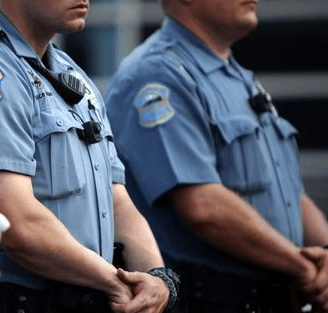Several police chiefs in the Dallas, Texas area have stepped forward to voice their support for the increased use of police body cameras. As national headlines during the past few weeks have been filled with stories about protesters angry about the deaths of black men who were killed in altercations with police offers in Ferguson, Missouri and New York City, supporters of the cameras say that their widespread use will both protect police from frivolous claims and citizens from abuses of power by the police.
A number of police agencies in the North Texas area have been slowly purchasing the cameras and distributing them to their officers, and the police chiefs view them as a positive tool for law enforcement, according to a report by the Dallas Morning News. In the past, Dallas Police Chief David Brown has called the cameras “the future of law enforcement,” and at a press conference last week, said that cameras were “not a panacea but another tool.” The key, according to Brown, is “relationships with the community” that build trust, and “cameras can continue that relationship.”
The Dallas Police started field testing 50 body cameras earlier this year, and some officers also began using their own personal devices, according to the Morning News. The city plans on using funds from forfeiture cases to purchase 200 cameras in early 2015. DeSoto Police Chief Joseph Costa, whose department has 55 cameras, described their program as a “great success” so far. Fort Worth already has 600 cameras for its officers and other North Texas police departments in Lancaster, Denton, and Duncanville, have expressed a desire to start using cameras as well.
In response to the demand, State Sen. Royce West (D-Dallas) has filed a bill to require Texas police agencies to apply for funding to purchase more cameras. West’s bill, SB 158, would require all police agencies whose officers who “are engaged in traffic or highway patrol or
otherwise regularly stop or detain motor vehicles” or “respond to calls for assistance from the public” to apply for funding for body cameras. The bill also requires police departments to adopt policies for when the cameras should be used, when recordings should be deactivated, and how the data should be stored, backed up, and kept secure. The bill also requires the policies to respect privacy rights and comply with evidentiary rules, and requires that any recording of an incident that involves the use of deadly force by an officer, or is otherwise under investigation, cannot be deleted.
The Legislative Budget Board has not yet analyzed West’s bill for cost, but West estimated the total cost to the state for cameras and data storage could be between $50 million and 70 million. Some savings could be realized if the videos are able to successfully rebut frivolous lawsuits and complaints against law enforcement officers. President Barack Obama has also proposed providing federal funding to state and local police departments.
West described his bill as a “shell” that he was hopeful would lead to a productive discussion among his legislative colleagues when the session starts in January. “This is a national debate, and Texas cannot afford to be left out of the debate and cut out of the solution,” said West.
Follow Sarah Rumpf on Twitter @rumpfshaker.

COMMENTS
Please let us know if you're having issues with commenting.